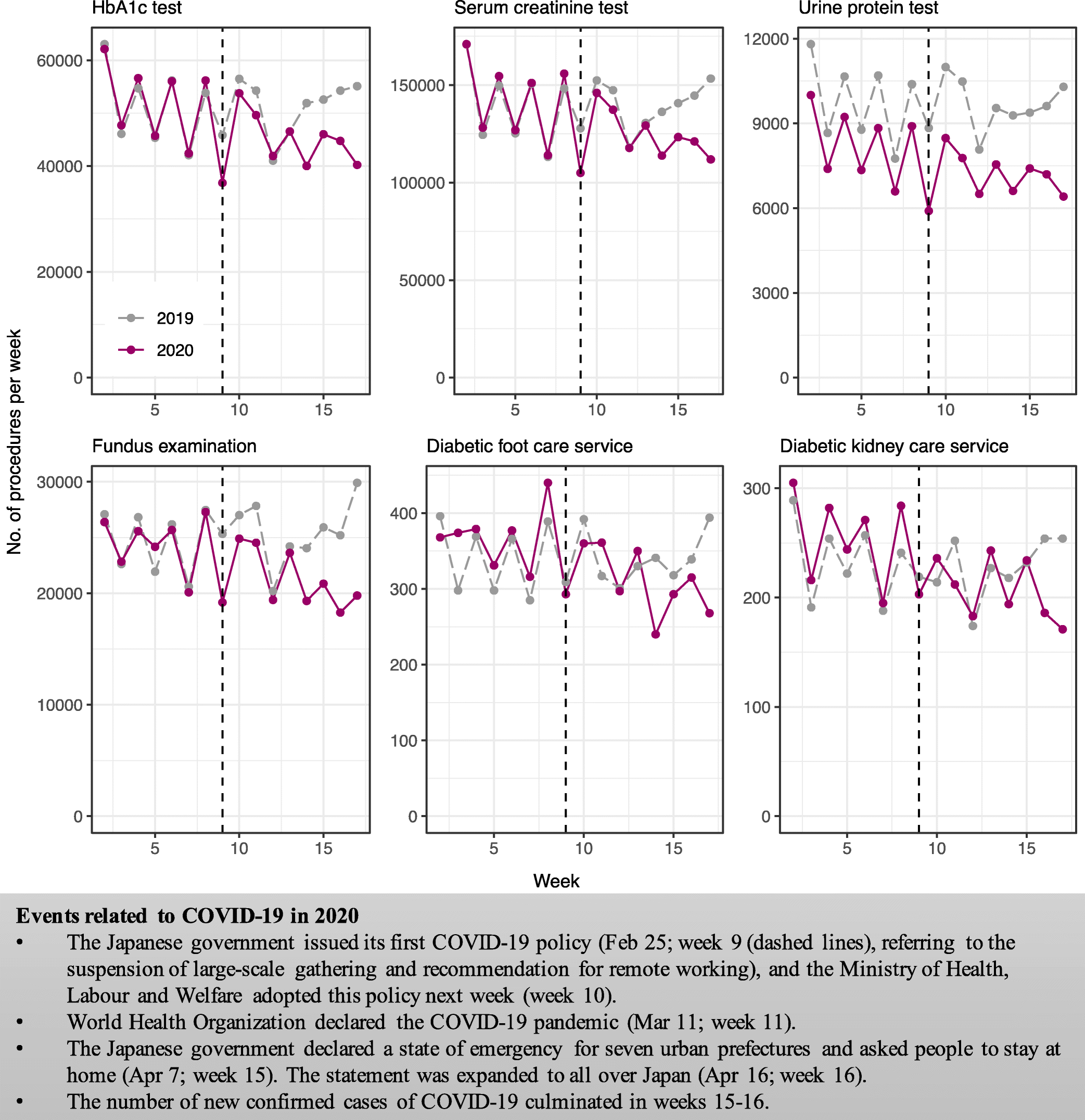News
Diabetes care decreased during COVID-19 epidemic
- February 2, 2021
An analysis using a large-scale medical care database owned by Medical Data Vision Co., Ltd. (Chiyoda-ku, Tokyo; President: Hiroyuki Iwasaki) revealed that during last year’s epidemic of novel coronavirus infection (COVID-19), preventative care for diabetes including aggravation prevention (includes dialysis prevention and foot care) decreased.
(https://doi.org/10.1007/s11606-020-06413-w)
This study was conducted by a team led by Assistant Professor, Dr. Atsushi Miyawaki, Dr. Ryo Ikesu (Ph.D.), and Professor Yasuki Kobayashi of the Department of Public Health, Graduate School of Medicine, University of Tokyo, in collaboration with Masaki Nakamura, Director of MDV, Dr. Hideki Ninomiya (President and CEO of DATA, Inc., Physician) and Department of Health Policy and Management, Keio University School of Medicine, and Dr. Takehiro Sugiyama, Director, Diabetes Information Center, National Institute of Global Health and Medicine. This article was published in the Journal of General Internal Medicine on January 19, 2021.
There were cases in which diabetic patients postponed their regular medical visits wary of the risk of COVID-19 infection, before and after the first emergency declaration was issued in April last year. A decrease in the number of diabetic care visits could have possibility cause serious public health implications, however, there was no information to an extent how much of diabetic care practices had actually declined.
Using Medical Data Vision’s database built from the nation’s large-scale acute care hospitals data, the researchers compared the number of routine tests and care provided to diabetic patients per week within an outpatient visit across 186 hospitals during weeks 2-8 of 2020, the beginning of 2020, and weeks 9-17, which included the first half of the emergency declaration period of 2020.
As a result, the number of HbA1c (hemoglobin A1c) tests performed per week, which are measured in regular blood tests for diabetic patients to control blood glucose levels, decreased by 15.2%, from 52,392 per week in the weeks 2-8 of 2020 to 44,406 per week in the weeks 9 -17 of the same year. The study also revealed that the number of all other tests and care including serum creatinine, urine protein test, fundus examination, diabetic foot care service and diabetic kidney care service (dialysis prevention) also decreased.
Assistant Professor Dr. Miyawaki of the University of Tokyo’s Graduate School of Medicine commented, “How much the glycemic control of diabetic patients has worsened (or remained the same) will be an issue for future study.”
[Reference] Ikesu, R., Miyawaki, A., Sugiyama, T., Nakamura, M., Ninomiya, H., & Kobayashi, Y. Trends in Diabetes Care during the COVID-19 Outbreak in Japan: an Observational Study. J GEN INTERN MED (2021).
https://doi.org/10.1007/s11606-020-06413-w
